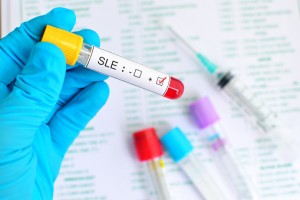Newer, Faster And Efficient System For Lupus Detection.
Source: Universitat Polytechnica de Valencia (UPV),Spain Feb 03, 2019 6 years, 2 months, 3 weeks, 3 days, 53 minutes ago
Autoimmune diseases, such as systemic lupus erythematosus or rheumatoid arthritis, are difficult to diagnose, specially in early stages. Specifically, in the case of lupus, specific antibodies aimed at antigens located in the nucleus of cells appear, including the anti-Ro/SSA. These anti-Ro/SSA antibodies can be found in the blood before other autoantibodies related with lupus, and can even be detected without the existence of symptoms.

As explained by Angel Maquieira, researcher of Valencia's Polytechnic University (UPV), belonging to the Molecular Recognition and Technological Development Institute (IDM), the tests currently used to detect the presence of immunologic bodies are based on tracing autoantibodies with the ELISA technique. These tests are not very sensitive, which limits the ability to reveal the extremely low amounts of these antibodies that are usually present in the first stages of the disease.
To tackle this deficiency, researchers of the Universitat Polytècnica de València, the Universitat de València and the Hospital Universitari i Politècnic La Fe have developed, at a laboratory scale, a highly sensitive biosensor that enables the early detection of autoantibodies in very early stages of the disease, based on a sample of mere microlitres of blood or saliva.
"Each autoimmune disease creates its own anti-Ro/SSA antibodies with a specific fingerprint, which is differentiated by our biosensor. Furthermore, at the same time, it quantifies very low amounts of anti-Ro/SSA antibodies (the equivalent of being 2,000 times more sensitive than current diagnosis tests), which makes it possible to assess very early on the symptoms that the patient shows," explains Maquieira.

In fact, as highlighted by doctor José Andrés Román, head of the Clinical Department of Rheumatological Diseases of the Hospital La Fe, "the results obtained from comparing this technique to assess symptoms shown by the patients and their activity, in more than 150 patients with lupus and a group of healthy people, has confirmed the high sensitivity of this new technique."
"The developed biosensor entails a new paradigm for in-vitro systems, as not only can we detect the amounts of the target antibodies, but we can even identify how they interact with one another. Therefore, the diagnosis can be made with the "fingerprints" which are particular to each disease, and issue a prognosis based on the levels of target antibodies. This is therefore a 2-in-1 system (diagnosis and prognosis) which will noticeably decrease the number of false positives and negatives," explains Universitat de València professor David Giménez in an interview with Thailand Medical
News.
Researchers already have a biosensor, patented by the UPV, UV and La Fe Hospital, which could be used in clinical practice.

